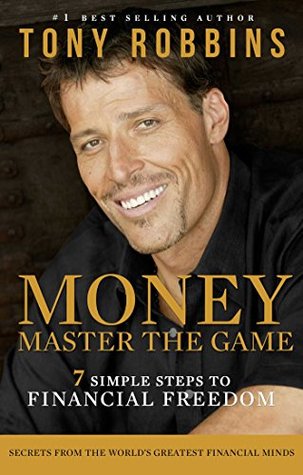More on this book
Community
Kindle Notes & Highlights
the truth is you can always find a way to make the money you need. How? The secret to wealth is simple: Find a way to do more for others than anyone else does. Become more valuable. Do more. Give more. Be more. Serve more.
“What has been very successful for me through my whole life is to not be arrogant about knowing, but to embrace the fact that I have weaknesses; that I don’t know a lot about this, that, and the other thing. The more you learn, the more you realize you don’t know.”
Information without execution is poverty. Remember: we’re drowning in information, but we’re starving for wisdom.
“When a man with money meets a man with experience, the man with the experience ends up with the money, and the man with the money ends up with the experience.”
Have you ever noticed that no matter how much you earn, you find a way to spend it?
Before you speak, listen. Before you write, think. Before you spend, earn. Before you invest, investigate. Before you criticize, wait. Before you pray, forgive. Before you quit, try. Before you retire, save. Before you die, give. —WILLIAM A. WARD
The fastest way to feel connection, a sense of how significant your life is, a deep sense of certainty and variety, and put yourself in a state where you can give to others, is to find a way each day to appreciate more and expect less.
If you want to be rich, start rich. What can you be grateful for today? Who can you be grateful for today? Could you even be grateful for some of the problems and the pain that you’ve been through in your life? What if you took on the new belief that everything in life happens for a reason and a purpose, and it serves you? What if you believed in your heart of hearts that life doesn’t happen to you, it happens for you? That every step along the way is helping strengthen you so that you can become more, enjoy more, and give more.
McGonigal now highlights new research showing that when you change your mind about stress, you can literally change your body’s physical reaction to it. In an eight-year study, adults who experienced a “lot of stress” and who believed stress was harmful to their health had a 43% increase in their risk of dying. (That sure stressed me out.) However, people who experienced an equal amount of stress but did not view stress as harmful were no more likely to die! McGonigal says that physical signs of stress (a pounding heart, faster breathing, breaking out in a sweat) aren’t necessarily physical
...more
Social psychologist and Harvard professor Amy Cuddy offered a “no-tech life hack” in her famous 2012 TED Talk when she asked the audience to change their posture for two minutes. Cuddy’s research showed that just assuming “power poses” or postures of high power (think Wonder Woman with her hands on her hips and legs firmly planted on the ground; or the guy in your office leaning back in his chair, hands clasped behind his head, elbows out wide—you know the one) increased testosterone (the dominance hormone) by 20%, while simultaneously reducing cortisol (the major stress hormone) by 25%.
What makes most people just dreamers versus those who live the dream is that dreamers have never figured out the price of their dreams.
MINDFUL SAVINGS Here’s a quick-and-easy six-step exercise to get you thinking more aggressively—more purposefully—about saving: 1. Brainstorm about all the recurring expenditures that you could eliminate or reduce to cut your expenses. Car insurance, cell-phone bills, lunch money, movie tickets. Think about where you can make changes. THE EARLIER YOU START, THE BIGGER YOUR NEST EGG (Assumes 10% Annual Rate of Return) 2. How much do these items or activities cost? Highlight the most significant of these expenditures and make a note of the associated costs. Next, calculate how many times per
...more
This highlight has been truncated due to consecutive passage length restrictions.


